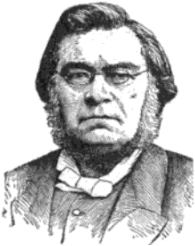A Quote by Arthur W. Pink
After grief for sin there should be joy for forgiveness.
Related Quotes
The Catholic community must offer support to those women who may find it difficult to accept a child, above all when they are isolated from their family and friends. Likewise, the community should be open to welcome back all who repent of having participated in the grave sin of abortion, and should guide them with pastoral charity to accept the grace of forgiveness, the need for penance, and the joy of entering once more into the new life of Christ.
There is in India a story of a dying youth who, hearing the sobs of grief around him, cried: Insult me not with your cries of sympathy. When I soar to the land of eternal light and love; it is I who should feel for you. For me, disease, shattering of bones, sorrow, excruciating heartaches no more. I dream joy, I glide in joy, I breathe in joy evermore.
Jesus' forgiveness of our sins is the single most impactful part of the gospel, and when we forgive others who sin against us we're shining his light most brilliantly. Every act of forgiveness brings a touch of Heaven to Earth, and it makes the gospel look as otherworldly and supernatural as it is. Forgiveness is constructed in the DNA of the persecuted.
Man is more himself, man is more manlike, when Joy is the fundamental thing in him, and Grief the superficial. Melancholy should be an innocent interlude, a tender and fugitive state of mind; Praise should be the permanent pulsation of the soul. Pessimism is at best an emotional half-holiday; Joy is the uproarious labor by which all things live? Christianity satisfies suddenly and perfectly man's ancestral instinct for being the right way up; satisfies it supremely in this, that by its creed Joy becomes something gigantic, and Sadness something special and small.
Sometimes grief is a comfort we grant ourselves because it's less terrifying than trying for joy. Nobody wants to admit it. We'd all declare we want to be happy, if we could. So why, then, is pain the one thing we most often hold on to? Why are slights and griefs the memories on which we choose to dwell? Is it because joy doesn't last but grief does?































